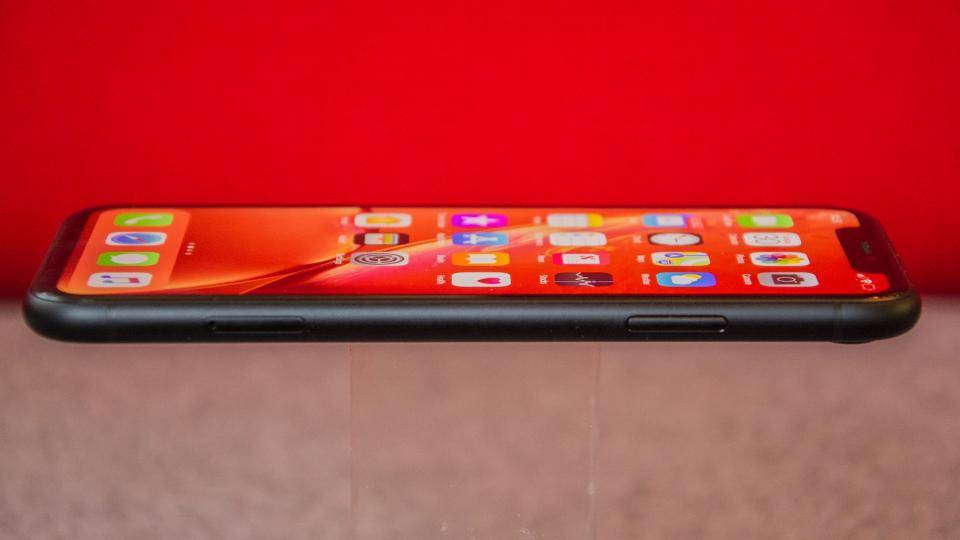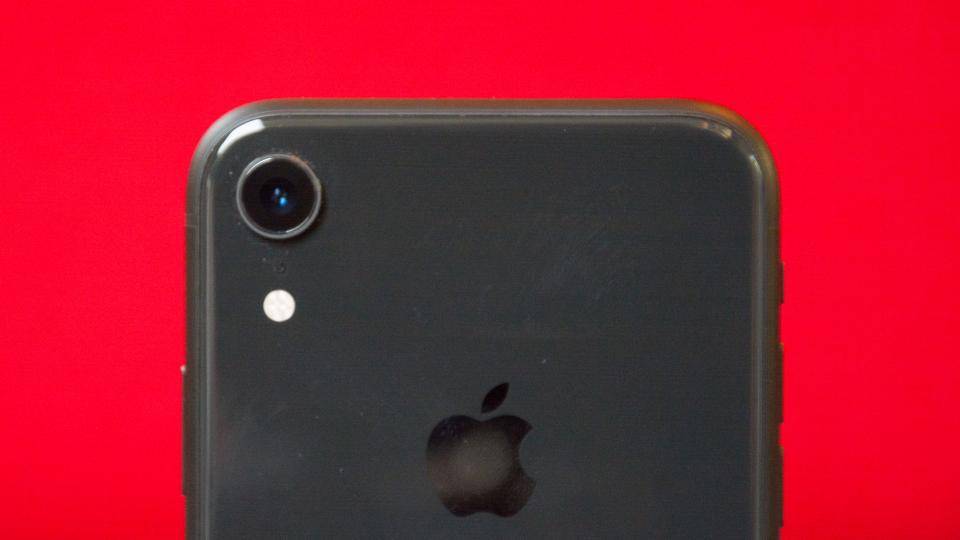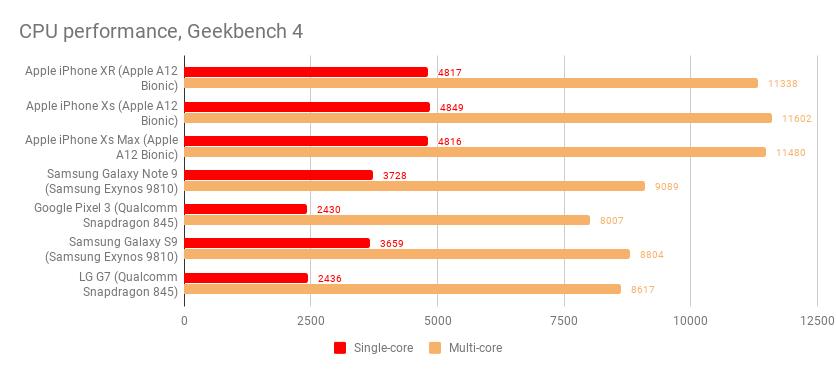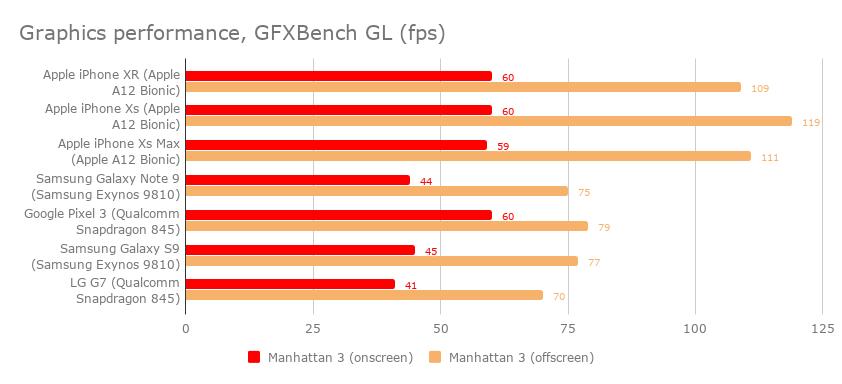It’s been a frustrating wait for the iPhone XR, but you can see why Apple staggered the launch of this year’s iPhone line-up. It wanted people to get excited about the more expensive models and splash out before making the iPhone most fans probably should opt for available in the shops.
Not that the iPhone XR is what you’d call cheap. It’s still £749, which elevates it to a price that’s higher than most flagship Android devices. But at £250 less than the equivalent iPhone Xs, it is, at least, not horrifically overpriced.
Apple iPhone XR review: What you need to know
The good news is that the iPhone XR isn’t hugely different from its larger and more expensive siblings, at least not where it counts. It has a similar full-screen notched display to the Xs and Xs Max; it’s clad in glass at both front and rear; the internals are identical; and it runs iOS 12, just like the upmarket iPhones.
The differences are pretty subtle. At 6.1in across the diagonal, the iPhone XR has a slightly larger display than the iPhone Xs, and that display uses IPS technology instead of OLED. It's also available in different colours – black, white, coral, blue and red – and there's a single camera at the rear rather than two. That’s pretty much it for major differences.

Apple iPhone XR review: Price and competition
That makes the iPhone XR – at £250 less than the Xs – clearly the best-value iPhone of Apple’s 2018 phones.
Let me be clear, though: you still get more for your cash if you switch to Android. The Samsung Galaxy Note 9, for instance, is £799 and includes a dual camera with a 2x zoom and a stylus. Alternatively, the price of the Samsung Galaxy S9 has now fallen to around £500 , and it’s still as stupendously good as when it first launched.
Elsewhere, the Huawei P20 Pro is £600 and gets you three rear cameras; there’s the recently launched Google Pixel 3 at £739 ; the LG G7 , which has fallen to a ludicrously low £420; and the just-launched OnePlus 6T at £499 . You have a lot of choice here.
Best iPhone XR contract and SIM-free deals:
READ NEXT: Best smartphones
Apple iPhone XR review: Design and key features
It takes an eagle eye to spot the physical differences between the iPhone XR and the iPhone Xs. The front-filling screen is where it starts: the iPhone XR has a border that’s slightly thicker than on the iPhone Xs, and the frame is matte-finish aluminium instead of shiny stainless steel.
Look a little closer and you’ll see that the camera housing at the rear is circular rather than oval in shape. The iPhone XR also has two fewer antenna bands around the edges, giving away the fact that this phone has only a 2x2 MIMO antenna array and can't reach the same gigabit download speeds as the Xs and Xs Max.

There are also a few differences you can’t see. The iPhone XR is slightly less water-resistant than the iPhone Xs, at IP67 instead of IP68, although it will still shrug off a light shower and a dousing in tea or coffee. It’s also available in different storage configurations to the Xs (64GB, 128GB and 256GB instead of 64GB, 256GB and 512GB) and a series of bright colours: blue, red, yellow, orange (coral), white and black.
Other small differences include a slightly different type of glass on the rear and a battery that sits between the iPhone Xs and Xs Max in terms of capacity. Otherwise, the XR feels every bit as good to hold and to use as Apple’s top-end iPhones and has most of the same features, including the True Depth Face ID camera on the front. There’s no fingerprint reader here nor a 3.5mm headphone jack and, as ever, there’s no storage expansion.
Apple iPhone XR review: Performance and battery life
For core performance, the iPhone XR employs Apple’s latest hexa-core mobile chip: the A12 Bionic. This 7nm chip is the fastest in the mobile industry right now and, backed by 3GB of RAM, it powers the iPhone XR to an impressive set of benchmark results.


It feels as responsive as you’d expect of a new iPhone and it’s also fast enough to run any game at a steady, smooth frame rate, although since the display is capped at 60Hz, you won’t be seeing frame rates topping 60fps.
Battery life, thankfully, is much better than last year’s iPhone X, something that’s largely thanks to the more efficient 7nm A12 Bionic processor. And it sits exactly in the middle ground between the Xs and the Xs Max, lasting 13hrs 29mins. This isn’t exactly amazing but it should comfortably get you through a moderately demanding day of use.
Apple iPhone XR review: Display
The big difference between the iPhone XR and its more expensive siblings is the screen tech, which Apple is calling “Liquid Retina”. Don’t be bamboozled by the marketing speak, though. It’s just an IPS screen with rounded corners. The one key difference between the XR’s display and the Xs’ is that the border surrounding it is thicker.
READ NEXT: Apple iPhone Xs Max review: The best iPhone money can buy
Despite having a nominally lower pixel density (326ppi vs 458ppi), it doesn’t look at all fuzzy or pixellated and colour accuracy is as you’d expect from an Apple iPhone, which is to say pretty unimpeachable. Brightness reaches a sunny-day-friendly 684cd/m2 and the contrast ratio is unbelievable good at 1,736:1. While it isn’t quite up to the level of the OLED displays on the Xs and Xs Max, it’s not far off.
When tested in a browser window against an sRGB target, colour accuracy was pretty good, too: I measured 93% coverage of the sRGB gamut and superb colour accuracy. The display also supports both HDR10 and Dolby Vision content, so your Netflix Originals will look absolutely spiffing. Not quite as colour-rich as on the Xs and Xs Max, perhaps, but still pretty darned good.
Apple iPhone XR review: Camera
As with the rest of the XR’s hardware, there’s a fair bit of borrowing going on here. The camera is the same as you get on the Xs and Xs Max: a 12-megapixel snapper with an aperture of f/1.8, optical image stabilisation and 1.4um pixels, giving you more light-gathering capabilities over last year’s iPhone X.
You don’t get the Xs’ second camera, of course, but Apple is still giving you better dynamic range in video, alongside super-smooth 60Hz stabilised 4K footage. This is the still the best video camera in the smartphone world when it comes to usability, reliability and quality.
View latest Apple discount codes
And despite the lack of a second camera to add depth mapping, Apple’s portrait mode is still in evidence, and it has the same adjustable bokeh as on the iPhone Xs. The key difference here is that the iPhone XR shoots portrait images at a wider, less flattering angle than the Xs and Xs Max and you don’t get as many studio-lighting effects. The results are still very, very impressive, though.
Elsewhere, the iPhone XR’s camera is outstanding. It’s capable of capturing stunning images in both good and poor light, aided by Apple’s new Smart HDR algorithm, which captures and combines eight frames in a fraction of a second to deliver lag-free, full-range photography. And although it isn’t quite a match for the Huawei Mate 20 Pro or P20 Pro in terms of its stills photography, the differences are small enough that you won’t be embarrassed in a snap-off. ^ Click to enlarge to full size ^ Click to enlarge to full size
Apple iPhone XR review: Verdict
It’s clear that iPhone XR isn’t the best iPhone. It's not even the best phone you can buy for £749, and it’s certainly doesn’t represent the best value in the smartphone industry.
But if you want a new iPhone and you’re unwilling to spend £999 or more, it’s absolutely the phone you need to buy. It’s far cheaper than the Xs and Xs Max and, although the screen isn’t quite as good, the camera doesn’t have a zoom and it’s ever so slightly less water-resistant, I’d recommend saving your money. The iPhone XR is more than good enough.
|
Apple iPhone XR specifications |
|
Processor |
Hexa-core, Apple A12 Bionic (2x2.5GHz, 4x1.6GHz) |
|
RAM |
3GB |
|
Screen size |
6.1in |
|
Screen resolution |
828 x 1792 |
|
Screen type |
IPS |
|
Front camera |
7MP, f/2.2 |
|
Rear camera |
12MP, f/1.8, OIS |
|
Flash |
Quad LED |
|
GPS |
Yes |
|
Compass |
Yes |
|
Storage (free) |
64GB/128GB/256GB |
|
Memory card slot (supplied) |
No |
|
Wi-Fi |
802.11ac |
|
Bluetooth |
5.0 |
|
NFC |
Yes |
|
Wireless data |
4G |
|
Dimensions (WDH) |
76 x 8.3 x 151mm |
|
Weight |
194g |
|
Operating system |
iOS 12 |
|
Battery size |
2,942mAh |











